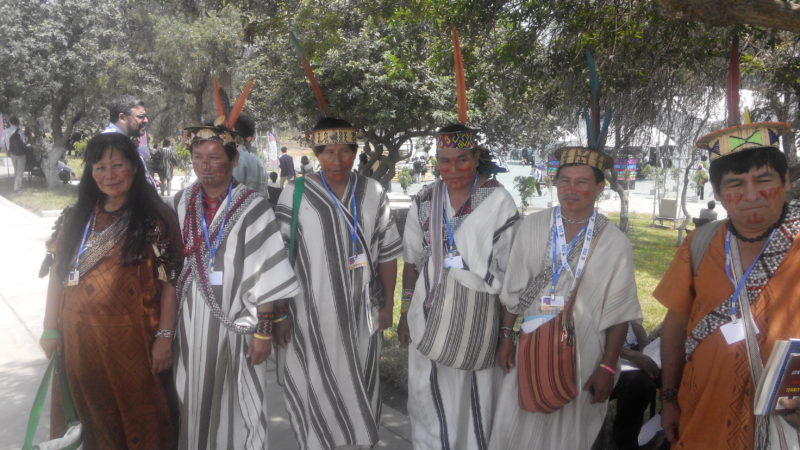August 9 is International Day of the World’s Indigenous Peoples and an occasion to celebrate the tenth anniversary of the landmark United Nations Declaration on the Rights of Indigenous Peoples (UNDRIP). According to the UN, indigenous peoples are inheritors and practitioners of unique cultures and ways of relating to people and the environment. And they are in a unique position to make powerful contributions to strong climate action.

Numbering about 370 million people worldwide, about five percent of the world’s population, indigenous peoples care for nearly 22 percent of the Earth’s surface. Living in areas as diverse as the Amazon and the Arctic, they help protect an estimated 80 percent of the planet’s remaining biodiversity.
The Paris Climate Change Agreement recognises the role of indigenous peoples and local communities in building a world that is resilient in the face of climate impacts. UNFCCC Executive Secretary Patricia Espinosa says she relies on the voice and knowledge of indigenous peoples “to understand how to build a platform that best serves the needs of the indigenous community” and which helps “to build bridges between indigenous communities and other groups acting on climate change.”
Indigenous Peoples on the Front Lines of Climate Change
By virtue of their unique and comprehensive traditional knowledge systems, indigenous peoples are at the forefront of understanding what climate change means for societies, ecosystems, and cultures, and how their resilience may be enhanced. Thus, providing indigenous peoples with a larger role in global climate action is crucial.
Traditional indigenous knowledge of the environment and weather patterns is passed down through many generations, and is crucial for monitoring and mitigating climate change impacts.
Examples abound of the resilience and adaptiveness of indigenous peoples using traditional knowledge to protect and enhance the natural environment and humans’ place within it. These practices are being refined and adapted to suit indigenous peoples’ needs in the face of climate change.
For instance, indigenous knowledge is being used in the Solomon Islands to enhance existing approaches to disaster risk reduction by contributing to the development of early warning systems and coping strategies.
In Nepal, a pilot project is using indigenous methods of seed storage as a basis for increasing resilience and improving the livelihoods of indigenous communities in the area, equipping farmers with the tools and knowledge to reduce loss and deterioration of seeds and increase local food security.
UNFCCC Designing Platform for Local Communities and Indigenous Peoples
In order to make this knowledge more accessible, and in order to increase the role of indigenous peoples and local communities in global climate action and support the inclusion of their knowledge systems in scaling up adaptation and resilience, the United Nations Climate Change (UNFCCC) Secretariat is setting up a new platform for local communities and indigenous peoples.
Established by the Paris Agreement, the platform will serve as a pivotal arena for advancing the engagement of indigenous peoples in the UNFCCC process.
The platform will seek to empower indigenous peoples, enhance the role of their knowledge systems, practices and innovations in global climate action, and help to uphold their right to the conservation and protection of the environment and land guaranteed in the UNDRIP.
The Adaptation Knowledge Portal under the Nairobi work programme aready offers a wealth of resources on the use of indigenous traditional knowledge to promote climate adaptation and resilience.
